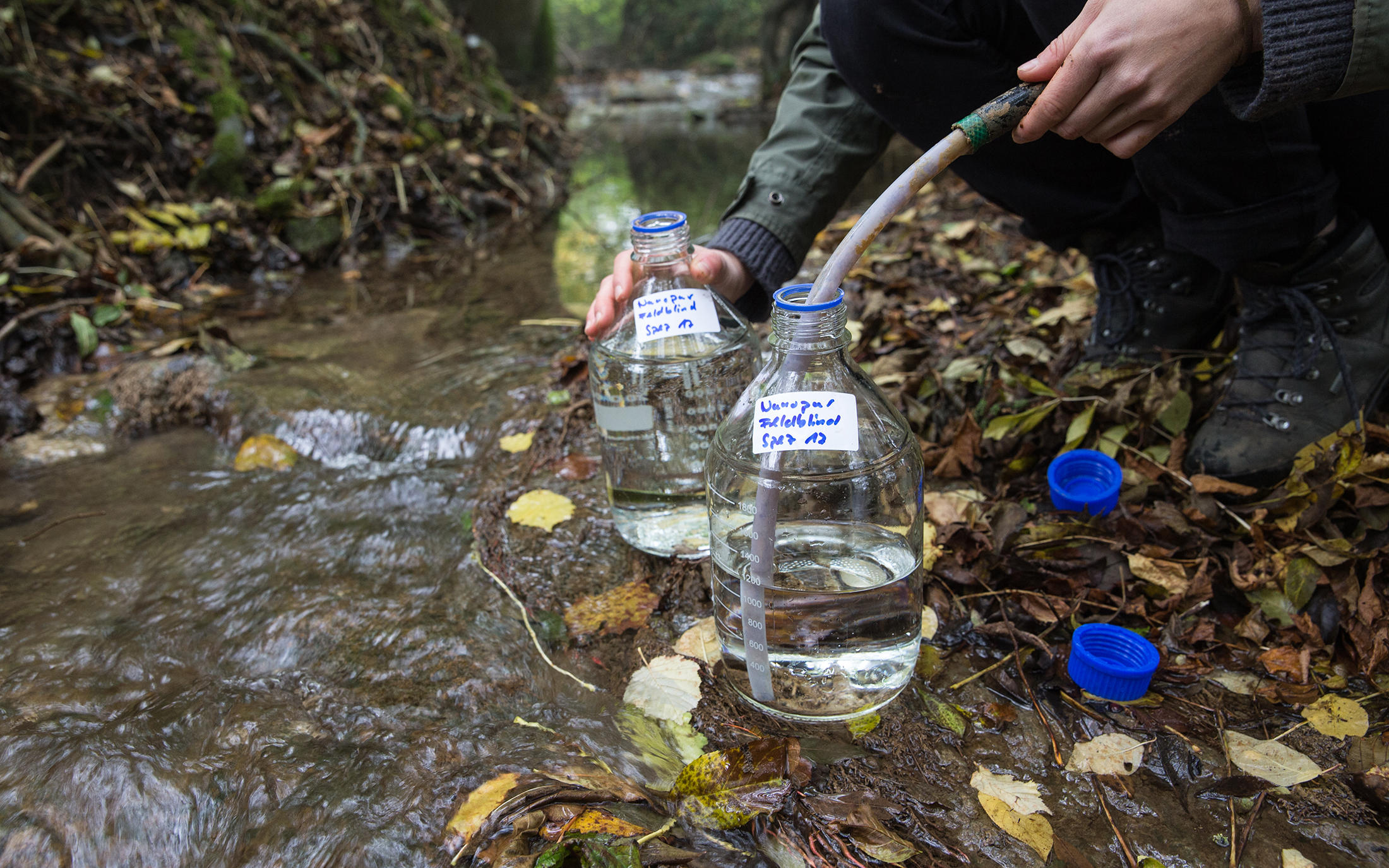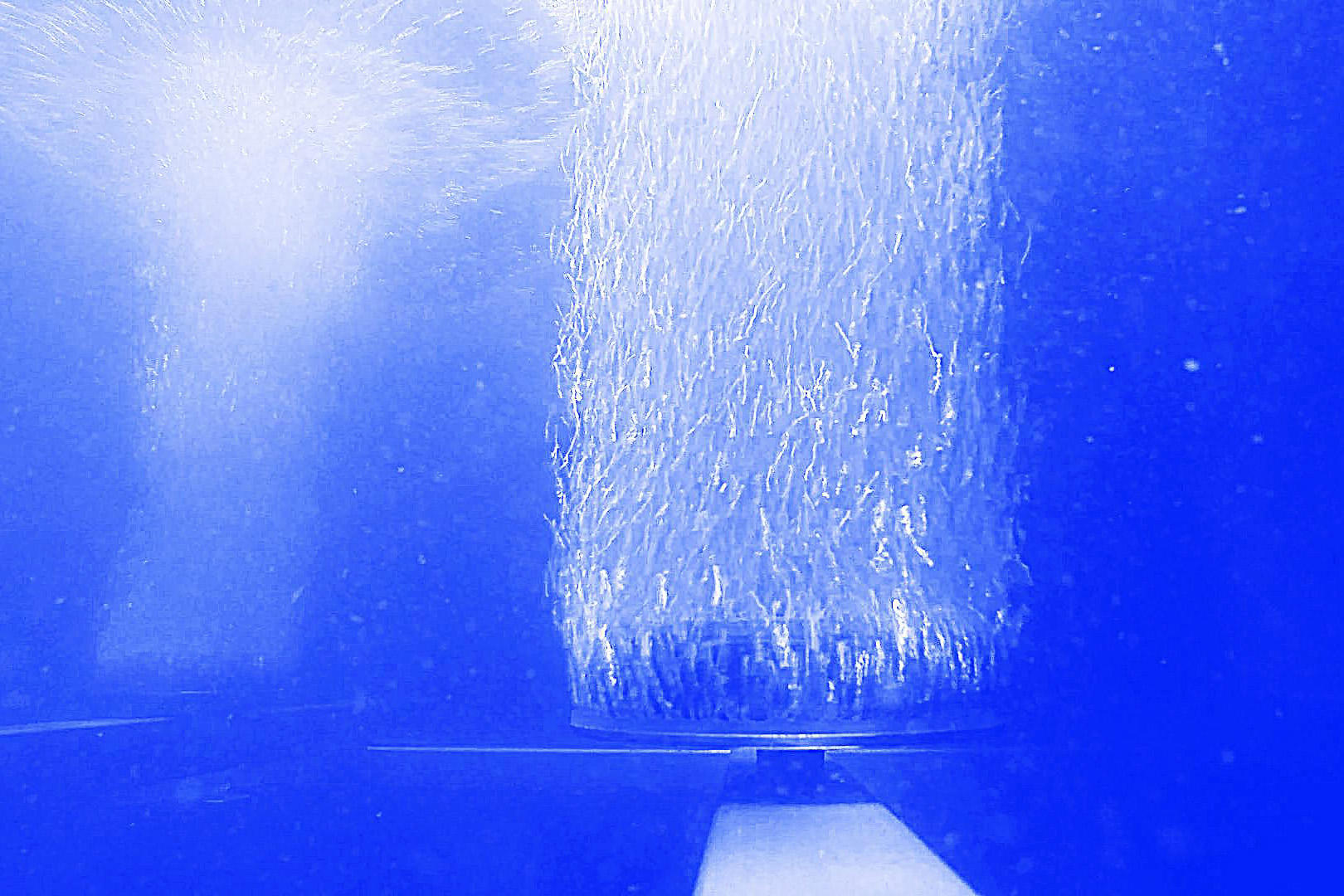
Excessive levels of pesticides found in small streams

Small streams in agricultural catchment areas are heavily polluted with pesticides, according to studies by the Swiss Federal Institute of Aquatic Science and Technology and the Ecotox Centre.
“Concentrations of individual substances persisting for several months pose a risk of chronic toxicity and, for extended periods, exceed the levels at which a risk of acute toxicity exists for aquatic plants and organisms,” the federal institute said in a statementExternal link on Tuesday.
Between March and October 2017, samples collected from five small streams with catchment areas subject to a variety of agricultural uses were analysed for plant protection products.
Scientists detected 71-89 active ingredients at each site and 145 substances altogether. The results have been published in the journal Aqua & GasExternal link.
Water quality criteria were exceeded in all five streams.
“These results are attributable to individual substances of particular concern, but also to the entire mixture of herbicides, fungicides, insecticides and other agents,” the researchers said.
“The risk calculated for the Eschelisbach [in canton Thurgau] was up to 36 times higher – and for the Weierbach [in canton Basel Country] up to 50 times higher – than the threshold at which adverse effects on reproduction, development and health are to be expected in plants, animals and microorganisms.”
‘Wholly inadequate’ protection
The limit specified for organic pesticides in the Waters Protection OrdinanceExternal link – 0.1 µg/L (micrograms/litre) – was exceeded at least once by 66 substances, including the herbicides glyphosate and mecoprop.
“But as these two examples of widely used substances show, this general limit says little about the risks for aquatic organisms, since it does not take substances’ ecotoxicological effects into account,” the authors wrote.
They point out that in the case of glyphosate, adverse effects in surface waters are only to be expected with concentrations over 120 µg/L. On average, concentrations of 0.16 µg/L were measured. In contrast, 18 substances which are harmful even at extremely low concentrations exceeded the ecotoxicological quality criteria lying below 0.1 µg/L.
“At the same time, certain insecticides with neurotoxic effects – which it only recently became possible to measure – are not even taken into consideration. With regard to substances of this kind, the protection provided for aquatic organisms by the general limit specified in the Ordinance is wholly inadequate.”
‘Worse than feared’
The Swiss Fisheries Association said on Tuesday it was shocked by the findings. It called for “in-depth studies on the impact of pesticide mixtures on aquatic life and cumulative limit values for water bodies”.
The association describes the results as “worse than feared” and sees the suspicion of many anglers scientifically confirmed. They say fish are hit twice by the large amount of pesticides in rivers: the active substances not only decimate fish nutrients but also poison their habitat.
The environmental groups BirdLife, Greenpeace, WWF and Pro Natura also talked of “scary” results. “We need a paradigm shift in agriculture, away from pesticides and towards agro-ecological methods,” they said in a joint statement.

More
Stepping up wastewater treatment

In compliance with the JTI standards
More: SWI swissinfo.ch certified by the Journalism Trust Initiative






























You can find an overview of ongoing debates with our journalists here . Please join us!
If you want to start a conversation about a topic raised in this article or want to report factual errors, email us at english@swissinfo.ch.